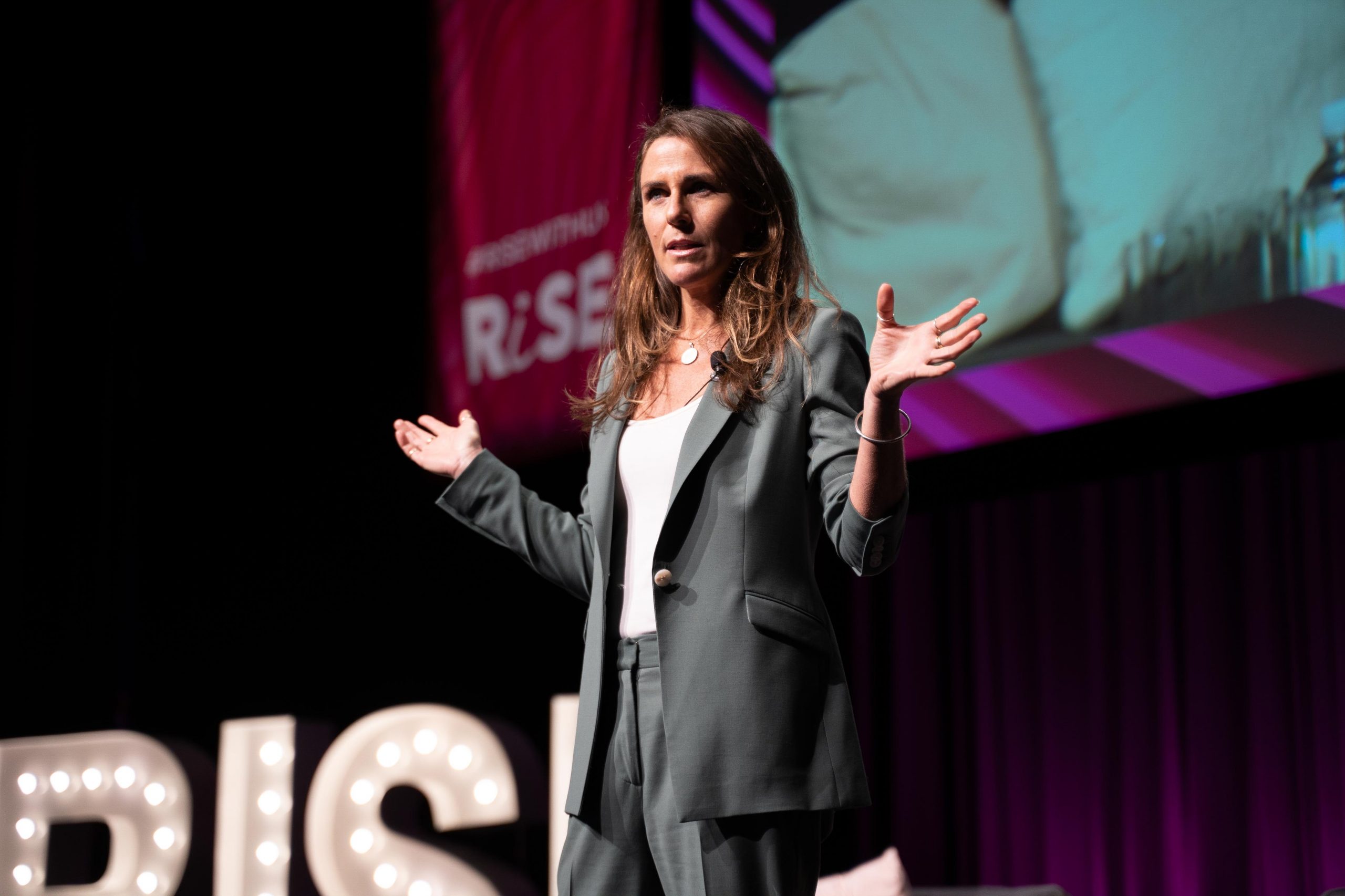
Don’t wait to be taught resilience because the ability to cope is within us all, keynote speaker and self-proclaimed “earth mother” Jules Allen told more than 1,000 real estate professionals at the Rise 2022 conference in Melbourne.
While numerous definitions of resilience existed, Jules said, most highlighted the importance of recovery or the ability to bounce back.
“There’s no point in teaching resilience if you don’t teach acceptance,” Jules told her audience. “I guarantee that every time you struggle, you’ll struggle to accept the situation. We are teaching the wrong thing.”
Jules asked delegates to stand if they had confronted anxiety or stress in their own lives – citing examples such as the death of a loved one, divorce or family issues.
The audience stood as one.
“If you think you are different, remember this moment,” she said. “There is no ‘them and us’. Smash the concept of ‘them and us’. When you accept your reality, you have the capacity to move on with greater strength.
“We suffer extreme amounts of anxiety when we don’t accept our situation.”
A mother of four, who incredibly has also fostered 29 children, Jules told her story of adversity and described how she had emerged to become a sought-after speaker, playwright, actor and (by accident) a popular Masterchef contestant.
Her work as an ambassador for National Adoption Awareness, Foster Care Australia, the Pyjama Foundation and Brookfarm has featured on ABC TV’s Australian Story.
It has been a remarkable journey for Jules, one founded in a childhood marked by separation from her brother – when her mother and father split, they each took one child.
“I hated my stepfather,” she said of her abused childhood. “I began drinking and drugging at a very young age. In Year 12, I was drinking and drugging every day.”
She was kicked out of university because she spent her time in one of three bars on campus. She grew pot at home and exchanged it for alcohol at a nearby bottleshop, and she joined a band called Salmon Guts that never went anywhere.
This was what happened “when you’re alcohol and drug-addicted and angry – you make bad decisions,” Jules said.
At 21, she was pregnant. She kicked her addiction and moved to the country with her partner but felt “isolated”. He began to be violent towards her. “I left and came back three times,” she recalled. “I look at women who do that and have no judgement.”
Then, it became too much.
“My partner had been drinking rum,” she said. “He held me against the wall by my throat. My son saw this, and I thought I didn’t want to bring up a child who’d go through life and think this was normal. So I grabbed my handbag and left.”
The audience burst into spontaneous applause.
“I had so much shame around where I found myself,” Jules said. “That’s what happens in domestic violence. I had to break the shame.”
At 22, she was looking after her first foster child. She has worked in child protection ever since. Three of her children are adopted.
Jules said she’d learned that anxiety was “a response to a situation that throws you into flight or fight. It has triggers – usually smell, sound or music – instantly, it reminds you of something”.
People often woke up with anxiety, which meant it was “continually relived”.
But it was possible to break a cycle of anxiety, built on three factors: the event that has caused anxiety; an emotional response with a trigger attached and, the memory it becomes.
“The brain doesn’t know the difference between the event that happened and how we replay it,” Jules said. “So, you have a familiar memory, it becomes a fear, and the brain goes into flight or fight.”
Jules said it was possible to create memories to combat anxiety. She asked the audience, “Why don’t we retrain and rewire our brain to see a future we already know”.
She asked everyone to picture their future in five years to achieve this goal. As music by Ennio Morricone from the 1986 movie The Mission played for two minutes, the room fell silent and delegates quietly created their “memory” of their future.
“Imagine what your perfect future looks like. Be in it,” Jules said.
“We need to get off the anxiety pathway. Do (this exercise) at home to a piece of music you’ll never get sick of listening to. That’s important. The brain will work towards a reality that it already believes is real.
“We create and look for what we want. You all have the opportunity to live in the opportunity you have created. Take the reins and make your life so goddamn extraordinary.”
